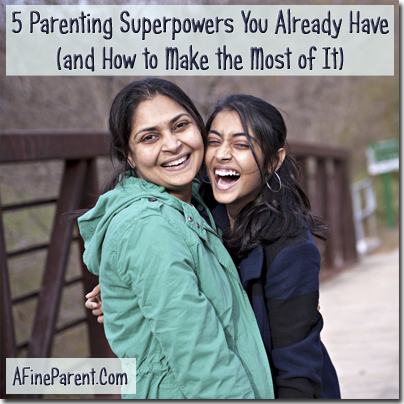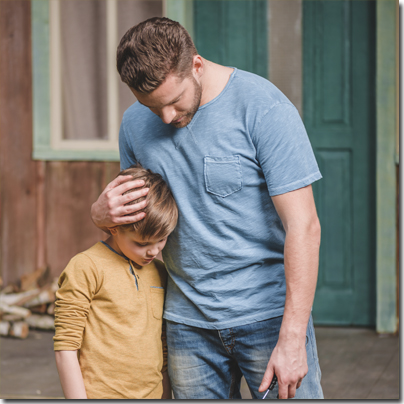 At the beginning of summer, when the weather was heating up, I walked into my 11-year-old son’s room to find his windows smeared with something gunky.
At the beginning of summer, when the weather was heating up, I walked into my 11-year-old son’s room to find his windows smeared with something gunky.
What craziness was this? I felt my eyebrows raise and then pinch together. My lips pursed.
Luckily, my curiosity as to what on earth he’d been up to won over my frustration over the mess he’d made.
So I asked him. “What have you done to your windows?”
He replied, as if it were the most normal thing in the world, “I put sunscreen on them.”
My face must have shown the disbelief and even the dismay I felt. He began to falter, noticing my reaction.“Would that not work?” His face fell. “Sorry, Mummy.”
I opened my eyes wider and hesitated for a moment, caught between anger and incredulity. I very nearly snapped, shouted, and made him feel small. Thankfully, in the nick of time, I caught myself, remembered my Parenting Superpowers… and smiled.
What are these Parenting Superpowers?
Any parent who is doing their best – and aren’t we all? – is surely using, developing and finely honing those most Super of Super Duper Powers, every single day – even if you don’t know it yet.
These Superpowers are:
- Curiosity
- Empathy
- Listening
- Being a cheerleader
- Using laughter
If you’re reading this, then I’m guessing you have these Superpowers already. Perhaps like Billy Batson from Shazam, for them to work well, you just need to practice using them…and believe.
When you’re faced with a situation where your immediate reaction is to react — possibly not in a way you feel good about later — here’s how you can engage those Superpowers instead:
- Pause
- Assess
- Engage your Parenting Superpowers!
My son’s reply – luckily – gave me a moment to pause. And once you have that moment to pause and take a breath, it’s far easier to act as the Superpowered Parent that you are!
In this instance, I began using the Superpower of curiosity. “Why have you put sunscreen on your windows?”
He blinked. “To stop me getting burnt…”
There. He was just being curious, too. He really didn’t know “any better.” So maybe my role as parent was to teach him, and learn with him.
Next, it was time for some empathy and listening, and then maybe I could go on to be my child’s cheerleader, and then enjoy a healthy dose of laughter with him.
Here are some tips for how you can engage your Parenting Superpowers.
#1 Curiosity
 To use my Superpower of curiosity, I continued to seek answers alongside my son: “Do you know what? Although I’m pretty sure that sunscreen smeared on the window won’t protect your skin, I’m not sure of the scientific reason why. Let’s find out together.”
To use my Superpower of curiosity, I continued to seek answers alongside my son: “Do you know what? Although I’m pretty sure that sunscreen smeared on the window won’t protect your skin, I’m not sure of the scientific reason why. Let’s find out together.”
And so we did a little investigative work, starting at the beginning, with how the sun can burn our skin. We got really curious about melanin and then learned how a cream can protect us.
I was really happy about this one, particularly because my son is pale-skinned and freckled, the ideal candidate for sunburn. I’d nagged him plenty, but when he actually learned about sun hazards for himself, it changed his perspective.
You have the Superpower of Curiosity – Here’s why
When your child shows you a picture they have been working on really hard that just looks like a blob with some lines jutting out of it, do you tell them it’s rubbish and doesn’t look like anything? Of course not!
Instead, you…
- Pause
- Assess
- Engage your Parenting Superpowers!
…and find something to be curious about. (Right?) What is that line poking off to one side? And how did you choose that awesome color?
You are flexing your curiosity Superpower and encouraging your child’s creativity and imagination.
#2 Empathy
 Because he had apologized about the sunscreen, and I worried I had initially begun to make him feel I was judging him, I wanted to reassure my son.
Because he had apologized about the sunscreen, and I worried I had initially begun to make him feel I was judging him, I wanted to reassure my son.
I said, “You don’t have to be sorry. If you try something new, experiment, that is how you learn. If my first reaction made you feel small, then it’s me who is sorry.”
I knelt to his level (I still have to do that, but only just) and looked at him, “OK?”
He looked relieved, and asked me, “Was that a stupid thing to do?”
Inwardly thankful that he hadn’t used the word “stupid” to describe himself (not allowed in our household!), I said that it wasn’t the best idea he’d ever had, but that I understood he’d been experimenting. No harm done.
“If I seemed cross at first, it’s because I saw how filthy the windows were and I thought of the extra work involved for me, with washing them. But I’m sure you’ll clean them yourself, right?”
And so, my hope was that he could empathize with me, in return. Oh, and learn how to clean windows.
One of the best lessons I’ve learned on teaching empathy is that it’s an ongoing process. Leading by example, telling stories which show empathy, and communicating through play and patient discussion go much further than any formal class on empathy.
You have the Superpower of Empathy – Here’s why
When your child feels happy, you share in their joy and you celebrate every small win.
But when they are feeling sad, you are their best comforter. It comes easily to you because you share their pain. If you could take it away and feel it double, you would.
“A problem shared is a problem halved,” takes on a whole new meaning, and your child can feel comforted by the fact that their feelings have been validated. It’s okay for them to feel whatever emotion they feel.
When they are sad, you…
- Pause
- Assess
- Engage your Parenting Superpowers!
…and you don’t say, “Cheer up. It might never happen.”
You don’t say, “It’s not the end of the world.”
You certainly don’t say, “Oh, shut up. Stop complaining.”
Instead, what you’re more likely to say is, “I hear you. I feel your pain. It’s okay to feel sad sometimes.”
Sadness is just as important, and acceptable, as happiness. Allowing your child to feel the spectrum of emotions, and not just the “good” ones, or the positive ones, validates their ability to trust themselves. They are growing up as more rounded human beings. They aren’t going to bottle things up to explode later, possibly a lot later, down the line.
You are leading by example and passing your Superpower of empathy on to your child.
#3 Listening
 Listening, simply put, is paying attention.
Listening, simply put, is paying attention.
When my kid painted his windows with sun cream, I needed only to listen to his simple explanation to realize that he wasn’t being “naughty.” He was just exploring. And he was probably also feeling hot and bothered.
You have the Superpower of Listening – Here’s why
Really listening is not always as easy as it sounds with the seemingly constant background chatter and craziness of life with kids.
Do you really listen to your child? Do you listen to their words, and do you listen to the way they say them? Do you know how to interpret their messages?
Sometimes there can be a disconnection between the words spoken and the parent’s reaction – they don’t always add up to the same conclusion in a way that makes the child feel heard and listened to.
For example, if your child says, “You don’t love me,” the easiest response is to snap back, “Of course I love you. Don’t be silly!”
I know that’s what I used to do.
But I’ve learned that if you say that, your child feels as if you haven’t heard them. You just dismissed their feelings as silly and “not true”!
If you do this too often, they might begin to not trust their feelings, and start a cycle of pushing their feelings down and suppressing them.
When your child is telling you something as important as they don’t feel loved by you, they want acknowledgement and empathy. They need you to listen to them and hear them out, not dismiss their fears.
If you tell your child that they aren’t thirsty, for example, when they have just said that they are, or that they “don’t mean that”, then this is a “denial of your child’s feelings.”
How can we create a better connection between the words and the feelings? How do we reassure our kids without telling them that their feelings are not valid?
You guessed it! Firstly, take a breath. Pause. Listen. Give your child space. Stop talking over your child. In other words:
- Pause
- Assess
- Engage your Parenting Superpowers!
After you’ve given them some space to say what they need to say, then you can tell them you hear, from their words, that they don’t feel loved by you right now, and you can ask what you did to make them feel this way. They might not be able to answer completely, so you could ask them to be more specific – what was your behavior, when and where?
Then see how you can change your own behavior so that your child does feel loved. You might be surprised by what you learn when you really listen — it might not be what you expected at all!
#4 Being a Cheerleader
 I used my cheerleader Superpower as I encouraged my son to clean the last of the gunk off his windows. I helped with the really sticky bits and told him what a great job he’d done.
I used my cheerleader Superpower as I encouraged my son to clean the last of the gunk off his windows. I helped with the really sticky bits and told him what a great job he’d done.
You have the Superpower of Cheerleader – Here’s why
As a parent, you know your child better than anybody.
You have a pretty good idea of just how far you can encourage them out of their comfort zone to safely test their boundaries. As a child grows in size, their bubble — their world — should expand with them. They need to feel safe, but they also need to grow and learn.
You can encourage them in their explorations and keep them safe. They look to you for guidance, and it is with secret relief that they hear you call them back when they’re about to step out a little too far. You catch them just before they fall.
If they want to approach a kid at the park but they’re a bit shy, then you could:
- Pause
- Assess
- Engage your Parenting Superpowers!
Encourage them to take a chance on a possible friendship.
It’s normal to be nervous about trying new things. You cheer them forwards throughout their journeys of discovery. But just a little at a time. Baby steps. You support them and allow them to feel just the right amount of fear so they can feel a sense of accomplishment as they grow through the natural stages of their young lives.
#5 Using Laughter
 It’s time for me to own up about something. When I’ve been talking about how I acted as this amazing Superpowered Parent during “the window incident,” I’m actually bigging myself up a bit.
It’s time for me to own up about something. When I’ve been talking about how I acted as this amazing Superpowered Parent during “the window incident,” I’m actually bigging myself up a bit.
I didn’t really do the science project with my son, for example. A little of the above is more what I wish I’d done than what I actually did do at the time.
Please forgive me – I’m sure you understand, as a parent, that hindsight is a wonderful thing! And the parent I write about above is really the parent I’m striving towards becoming.
Saying that, I am lucky to have a child with a brilliant sense of humour. And the Superpower that I most definitely did use was laughter.
We were able to laugh together about the window drama, which took the “drama” out of the “window” (or something), and diffused the situation completely.
Oh, and just for the record, he really did learn to clean windows!
You have the Superpower of Laughter – Here’s why
When I asked my daughter, aged 10, for inspiration in finding my fifth Superpower, I was hoping for some gem I could use such as “the best hug ever,” or even something a bit more wacky like “the ability to peel grapes.”
But when I asked her, “What special thing do I do to make you feel cherished and loved? What is my Superpower?” her reply wasn’t quite what I’d hoped for.
She exploded in fits of giggles and didn’t really want to spill the beans.
When it finally came out, I understood why. It seems, she told me through her chuckles, that my Superpower that makes her feel special is when I clean and tidy her room!
I didn’t really need to:
- Pause
- Assess
- Engage my Parenting Superpowers!
Because in this case, there was only one option. We both burst out laughing.
Kids, eh! It’s usually not too difficult to use your Superpower of laughter when you’re a parent.
Which just goes to show, there are no “rules” about how to use your Parenting Superpowers. We just do our best. But I hope that this is a reminder to you, as it is to me, that we are all positive parents with Superpowers, and I am sure that you can think of at least a handful of times when your child has helped you to engage your Superpower of laughter!
Sometimes, as a parent, I feel that if I don’t laugh, I might cry. And although it’s perfectly okay to cry sometimes, the better option is undoubtedly, usually, to laugh out loud.
You, the Superpowered Parent, with your awesome mini Superpowered beings, can always engage the power of laughter and come out feeling much happier and closer together.
2-Minute Action Plan for Fine Parents
Consider these questions as you seek to engage your parenting Superpowers:
- Curiosity: How curious are you about life? Have you been leading by example and discovering new things — for yourself and to teach to your child?
- Empathy: Close your eyes and imagine what it might feel like to be your child in a situation where they may be struggling. How does the world look when you’re two-feet tall?
- Listening: Have a think about whether you’ve been really listening to your child lately, or sometimes dismissing what they tell you. Do you really pay attention, or has the white noise of your everyday “to do” list been drowning out any important messages your child may be trying to convey to you?
- Being a Cheerleader: What is the latest developmental step your child is engaged in? Have you been gently encouraging them forwards?
- Using Laughter: Have you been laughing together enough lately? When was the last time you actually played with your child?
Ongoing Action Plan for Fine Parents
Here are some specific actions to take over the next week:
Curiosity:
Is there some interest of your child that you could develop together?
If they love painting in bold colors (and what child doesn’t, at some stage?), perhaps you could check out a nearby art exhibition that is kid-friendly.
Is there something that you are interested in that you could develop together?
Perhaps you’ve never really understood how electricity works. Now’s the time to learn how to build a simple circuit board.
Empathy:
The next time your child is cross or frustrated, let them know that it’s okay. They don’t have to be happy all the time. It is healthy to feel a spectrum of emotions.
Tell them you “feel their pain,” and ask what they need at that time. It could be a hug, but it might be some quiet time or perhaps talking something through.
Listening:
Make more eye contact. Get down to the same level as your child, and perhaps touch them as they talk to you – to ground them to the moment and remind them they are not alone and that you are taking notice.
Pay attention to how you react to things you’d rather not hear them say, and catch yourself if you are tempted to deny what your child is telling you (even if you have the best of intentions).
Being a Cheerleader:
If there is some project or a new challenge (however small) that your child is involved with, give them some encouragement. Support them so that they feel able to move on to the next stage.
Using Laughter:
Play a silly game, particularly one where you have to move around, such as charades. Or put some music on and have a dance with them. Anything a bit goofy, to get the laughter flowing.
So I hope you recognize your Parenting Superpowers! I bet you use them every day in one way or another.
Remember, in a situation that could make you react negatively:
- Pause
- Assess
- Engage your Parenting Superpowers!
And if our kids love us because we sometimes clean and tidy their rooms, they also love us because we are positive awesome parents with an array of amazing Superpowers!
Beautiful article
Aw… Thank you! Glad you liked it.
Great article nice information
So pleased you enjoyed it. Thank you!
Great article nice
I’m really glad you enjoyed it. Thanks for your comment.
Brilliant article – just what life is about when you have kids.
best
ashley
Thank you, Ashley. I’m glad you could relate. 🙂
This was a great article. Much appreciated and caused me to reflect on much of my own parenting. I especially loved the reminders about really listening, and acknowledging and encouraging the full spectrum of emotions. I’ve been trying to do that more with my toddler but this was a great reminder that my older children need that too. Thank you!
I’m so glad you enjoyed the article.
It can be so hard to see your little ones upset, and the snap reaction is often to try and cheer them up (or just as bad – or worse – deny their feelings). I used to, and it took me a while to realise how important it is for them (and us) to be allowed to feel sad too.
And yes, as you say, our older children need us to keep taking notice of them as they grow older. I find it challenging, tiring, but mostly, incredible, to learn and grow alongside my kids.
Oh what a great read, thank you! Absolutely, empathy can be hard to find when over tired and it all seems absurd, but yes, this article reminds me of the parent my children deserve!!
Aw, what a lovely comment! It’s funny because when I wrote the article, it really was a reminder to myself of the mum I strive to be. Our kids deserve the best versions of their parents. Happy parenting!
Brilliant article! One that makes me feel confident about doing the right things 🙂
Am reading a book about change management and it emphasises how powerful it is to identify what’s already going well – and build on it. This article does just that!
I’m so pleased you enjoyed the article. Thank you for your kind comment. I wonder what book you are reading. It sounds worth a look…
I love your idea of using what is already going well as building blocks. Awesome 🙂
The book is called “Switch” and is by Chip&Dan Heath. Very well written, I can totally recommend (and have no “shares” 😉
Thank you! That rings a bell so somebody else must have recommended it as well (whether they had shares, I don’t know 😉). It’s definitely going on my reading list now.